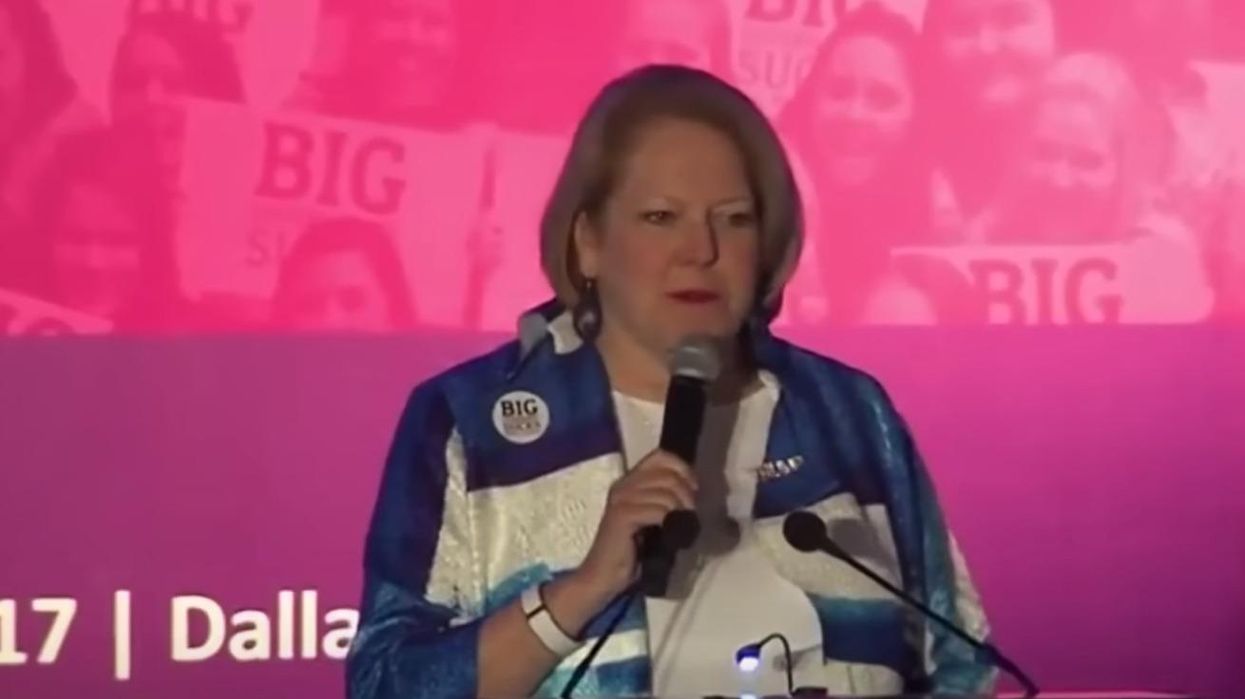'I Admit It': Ginni Thomas Pushed Election Lies Without Any 'Specific Evidence'
2022 will be remembered as a year in which the U.S. Supreme Court’s reputation continued to deteriorate, from the wildly unpopular overturning of Roe v. Wade in Dobbs v. Jackson Women’s Health Organization to the revelation that Justice Clarence Thomas’ wife, Ginni Thomas, tried to help former President Donald Trump overturn the 2020 election results. The January 6 Select Committee discovered that after now-President Joe Biden won the election, Ginni Thomas urged then-White House Chief of Staff Mark Meadows to do everything he could to keep Biden from being inaugurated.
And in March 2022, her series of text exchanges with Meadows became public knowledge thanks to some bombshell reporting in the Washington Post by Robert Costa and Bob Woodward — the veteran journalist/author who is also famous for his bombshell reporting on Watergate with Post colleague Carl Bernstein during the 1970s.
Woodward, like Bernstein and former Watergate prosecutor Jill Wine-Banks, has said more than once that Nixon’s crimes during the 1970s pale in comparison to Trump’s scandals. And more than a few Trump critics have commented that the January 6, 2021 insurrection and the fact that a U.S. Supreme Court justice’s wife wanted presidential election results overturned was more disturbing than Watergate.
Ginni Thomas’ text exchanges with Meadows show her to be an aggressive promoter of the Big Lie, Trump’s claim that the 2020 election was stolen from him through widespread voter fraud. But according to Richard Hall, a reporter for The Independent, Thomas’ interview by the House Select Committee revealed that her knowledge “wasn’t very deep” when she bought into Trump’s Big Lie. The committee recently released its 845-page final report.
In an article published on December 30, Hall explains, “Ginni Thomas, the wife of Supreme Court judge Clarence Thomas, admitted that she was not aware of any specific evidence of voter fraud in the 2020 election at the time she personally lobbied senior White House officials to overturn the results. In an interview with the House committee investigating the attack on the U.S. Capitol, a transcript of which was released on Friday, Ms. Thomas said that she ‘wasn’t very deep’ in her knowledge of specific voter fraud allegations at the time of her lobbying effort, but instead, ‘was basing what I believed off of people I trusted and news that I trusted.’”
That transcript, according to Hall, “provides new detail on how” Ginni Thomas “used her access” to “Donald Trump’s inner circle” to “influence the White House to reject the results of the presidential election.”
Text exchanges with Meadows that were obtained by the committee and reported by Woodward and Costa show the degree to which Ginni Thomas was all in for the Big Lie. In a November 10, 2020 text, for example, Justice Clarence Thomas’ wife told Meadows, “Help This Great President stand firm, Mark!!!...You are the leader, with him, who is standing for America’s constitutional governance at the precipice. The majority knows Biden and the Left is attempting the greatest Heist of our History.”
On September 29, 2022, Ginni Thomas was interviewed by Democratic Rep. Jamie Raskin of Maryland, a committee member. Raskin tried to determine what motivated her belief in the Big Lie, and she told him, “I can’t say that I was familiar at the time with any specific evidence. I was just hearing it from news reports and friends on the ground, grassroots activists who were inside of various polling places that found things suspicious.”
Republican Rep. Liz Cheney of Wyoming also questioned Ginni Thomas to confirm what she had told Raskin. And she replied, “Right. I know. I wasn’t very deep; I admit it.”
Ginni Thomas has maintained that she doesn’t discuss her work as an activist with Justice Thomas. But Hall reports that the committee asked her “about an exchange with Mr. Meadows in which she appears to suggest that she spoke with her husband, Justice Thomas, about the election.”
In one of her text exchanges with Meadows, she mentioned “a conversation with my best friend.”
Ginni Thomas told the committee, “It looks like it was my husband” but said she had “no memory of the specifics” and went on to say, “My husband often administers spousal support to the wife that's upset. So, I assume that that's what it was…. He had no idea that I was texting Mark Meadows about the election.”
Reprinted with permission from Alternet.




